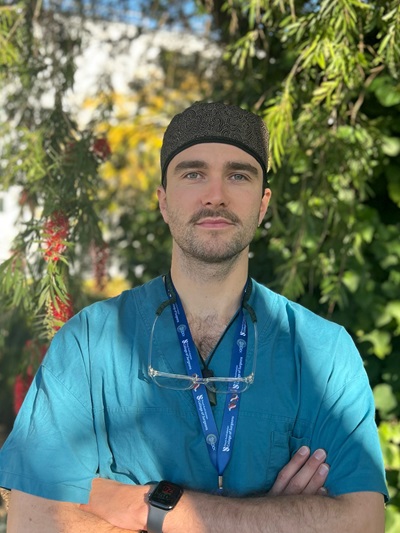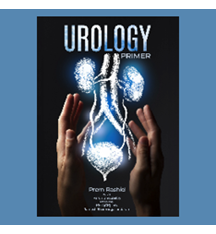2023 | Volume 24 | Issue 3

Dr Finn McClennan Battleday
Author: Dr Finn McClennan Battleday
Let’s dive into the issue of equity in surgery, now gaining increasing attention and seriousness in Australia and Aotearoa New Zealand.The Royal Australasian College of Surgeons (RACS) has recognised that there is still work to be done to ensure equity and inclusivity within the profession. From the perspective of an accredited surgical Trainee in the College, this is an understatement and should be used as a platform for progress in revolutionising the way, we as surgeons, represent our people. This resolute energy was certainly palpable at the recent 91st RACS Annual Scientific Congress (ASC) in Adelaide, South Australia. The celebrated conference marked recognition of the work so far completed in surgical inequity and Indigenous delegates delivered excellent presentations on expectations for continued progress in this field.
But the momentum generated in Adelaide requires ongoing pursuit. When looking to take the next steps with Indigenous health leaders in surgery, we can only measure outcomes by taking concrete action. The significant health inequity felt by the Indigenous peoples of Australia and Aotearoa New Zealand will continue to be reported until the demand for change is answered with action. With respect to Aotearoa New Zealand, broadly speaking, the 2019 report by the Ministry of Health, and the 2021 Perioperative Mortality Review Committee (POMRC) report in trauma summarised poorer outcomes and higher mortality for Māori across a range of surgical problems and procedures. Most of these reported metrics presented by the various health sections at RACS ASC showed Indigenous patients to have higher rates of hospitalisation, complication and mortality. We know this collection of findings extends to Indigenous Australians and is seen in other Indigenous populations further afield.
The issue of surgical inequity also transfers across the operating mantle. Surgical Trainees have shared their experiences of facing bias and discrimination during their training, and the lack of diversity within the profession remains obvious. Reported statistics for employment from the Medical Board of Australia show only 2.9 per cent of registered medical practitioners in Australia identify as Indigenous, and only 1.6 per cent identify as Māori or Pacific Islander.
Extrapolating this information for surgery only compounds our lack of professional diversity, which in turn makes it more difficult for Trainees from underrepresented groups to navigate the challenges of surgical training and education. According to a 2021 study published in ANZ Journal of Surgery, surgical Trainees from underrepresented groups are more likely to report a lack of support from supervisors and colleagues, including a lack of access to mentors who can provide guidance and advice.
In the 2022-2024 RACS strategic plan, these issues are recognised and are being addressed. Our College has established multiple approaches including the RACS Diversity and Inclusion Action Plan, which has initiatives aimed at promoting greater diversity and inclusion within the profession. The RACS Equity and Diversity Committee is responsible for overseeing the implementation of the action plan and ensuring that equity and diversity are fully integrated into all aspects of surgical training and education. The committee also provides advice and support to surgical Trainees who are facing issues related to bias and discrimination. The RACS Surgical Affairs and Education committees are responsible for developing policies and initiatives aimed at promoting equity and inclusivity in surgery, and the RACS Mentor Program pairs surgical Trainees with experienced surgeons who can provide guidance and advice. This reassuring dedication to see change penetrate through our internal problems will only be validated when we see results.
The under-representation of Māori and Indigenous Australian surgeons is a recruitment priority. Backing Indigenous colleagues by standing together, sharing the urgency and priority to take action in order to see real change is our responsibility if we are going to scale this change effectively. For Indigenous health leaders this is a burden felt heaviest, valuing their mana is influential. From an Aotearoa New Zealand perspective, my own Kaiako Māori shared the concept of Haumi (collective Māori word for ally). Applied to surgery, where camaraderie is valued highly, I like to think of this concept through the analogy of companion planting in a garden, where the enhanced plant growth is the outcome of synergistic interactions in a shared environment.
Surgical Trainees are the next generation of surgeons and they have a unique perspective on the challenges and opportunities ahead. By sharing our perspectives and expectations, we can pursue greater equity and inclusivity in surgery. We should act on the superb education we receive from our senior colleagues and inclusive events like RACS ASC as well as being empowered to challenge inaction. We can take our learning back to our home institutions with appetite to transform inequity by treating our patients with the required cultural respect to enable a setting which is accessible to them and to curate an environment for engagement in a culturally safe way every day in our respective institutions.
Overall, the progress being made by RACS towards greater equity and inclusivity in surgery is encouraging. However, Aotearoa New Zealand and Australia continue to face significant health inequities in surgery with respect to both patients and the surgeons committed to treating our patients and representing our peoples. It is essential to address bias and inequity within our system too; enacting the necessary systemic changes to solve this must definitively be taken in our own institutions.
Note: Dr Finn McClennan Battleday is a RACS general surgical Trainee at Hauora a Toi, Bay of Plenty, Aotearoa New Zealand.

